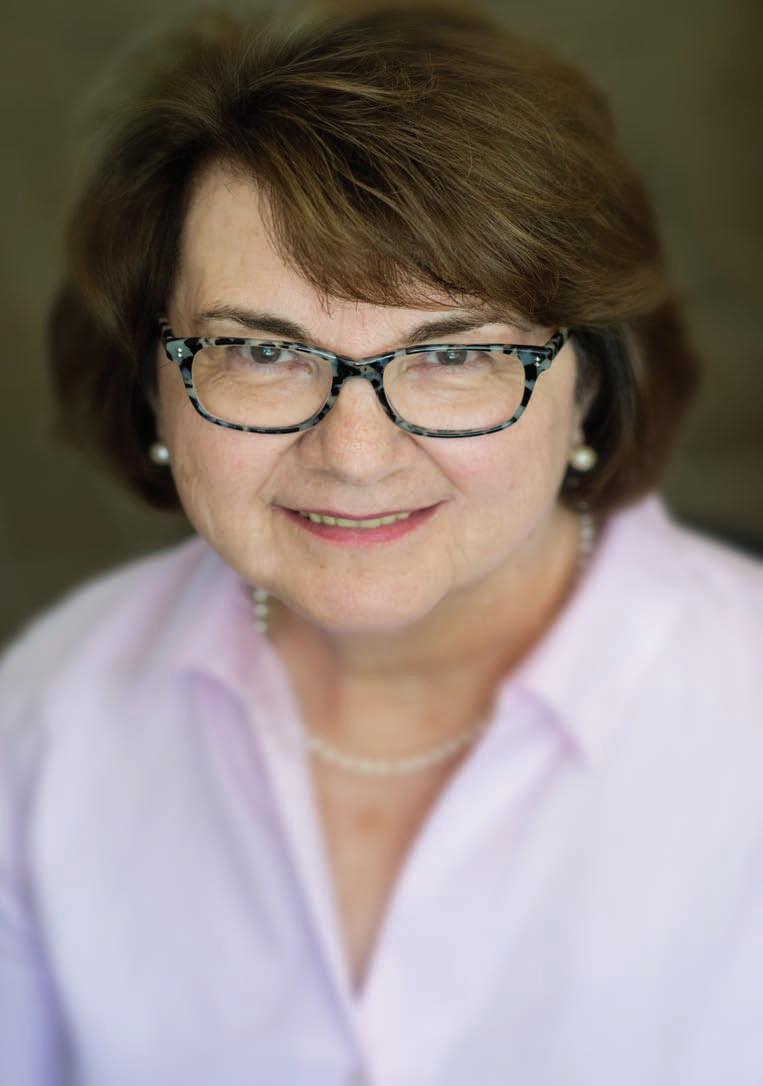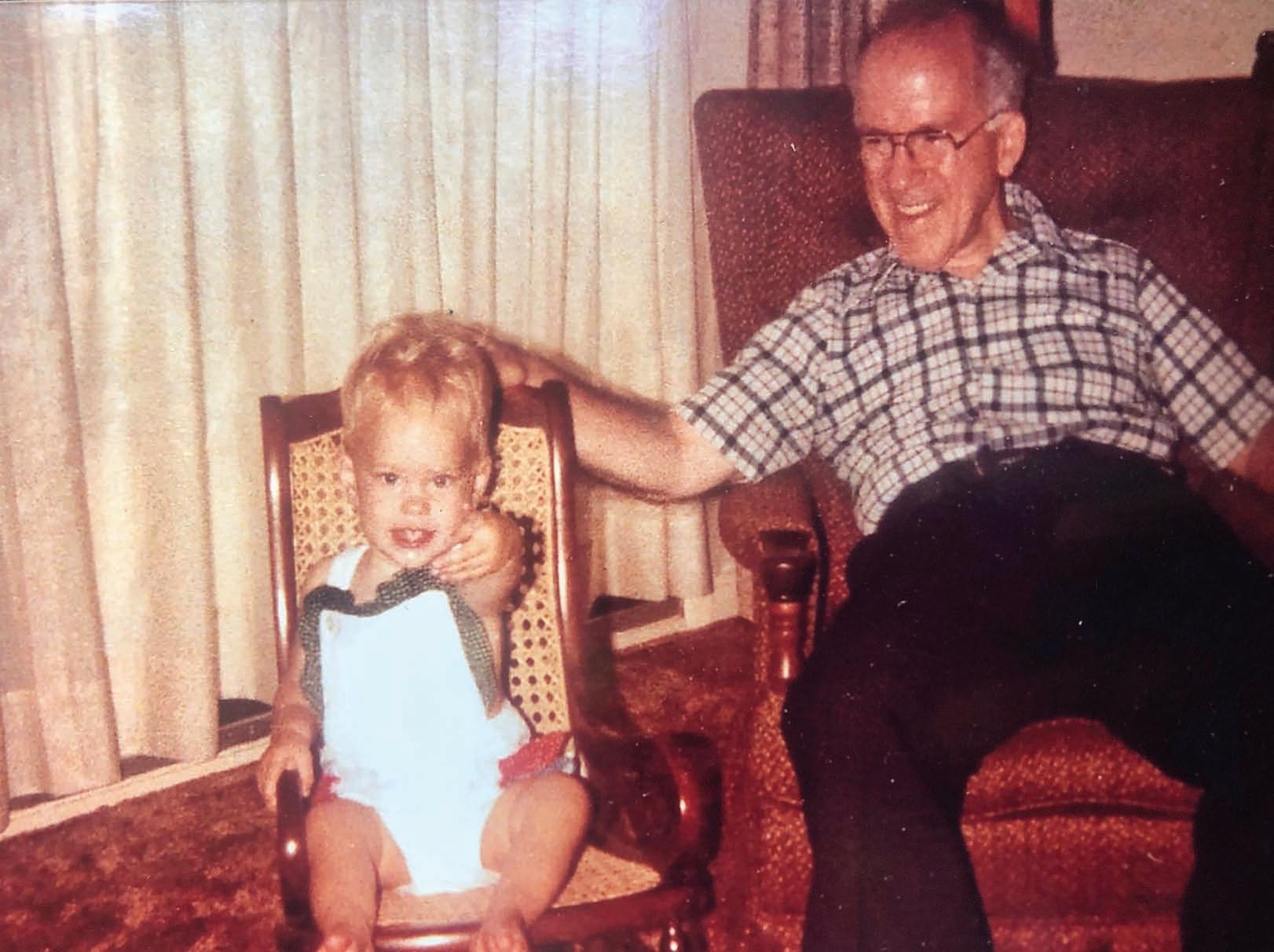
9 minute read
Generations Strong
By Laurie Zazenski
Three generations of the Furness Family - Charles, Janet, and Stephanie - share a bond beyond their familial ties: they each received their MSW degrees from Rutgers School of Social Work. Janet and Stephanie share how the preceding generations of their family impacted their decision to pursue a career in social work and explain what it means to be generations strong.

Janet Furness '72
Janet is a professor of social work at Nyack College. Following 23 years of adjunct teaching and working in administration, policy, planning, and advocacy in agencies and congregations in New Jersey, she has been working in higher education full time since 1994.
On Campus in the 1970s
My graduate school experience occurred during the volatile Vietnam War period and the unfolding of the community-based programs in Lyndon Johnson’s Great Society. Poverty and urban catastrophe reflected the ravages of race riots of the late 1960s. I was familiar with urban blight and human impoverishment from growing up in a family that served the city of Newark. Studying at Rutgers School of Social Work during this period gave me the tools for a meaningful career serving diverse populations.
On Her Father’s Influence
My dad was a minister and the Executive Director of Goodwill Home and Rescue Mission in Newark. His motivation for earning his MSW was realizing that with all the work he had done as a minister over 20 years, he was not prepared to serve the changing needs of the people who were coming to the Mission for services. He wanted to be up to the challenge, so he graduated from Rutgers School of Social Work in 1961 and was among the first members of the Academy of Certified Social Workers. In addition to participating in the Essex County Health and Welfare Council, he established a child welfare agency, which became licensed as an adoption agency.

In 1965 when he left Newark, he began the next phase of his career as a social work educator, starting the first BSW program at Cairn University. Bible colleges were known to prepare people for ministry, and Dad was convinced that ministers needed to know how to serve people holistically: he believed in the bio-psycho-social-spiritual model before it was diffused throughout the profession’s curriculum decades later. Dad encountered resistance to social work values in a college committed to male leadership. His innovative spirit convinced the administration that women needed to become leaders of the collegiate social work organization because, historically, the profession rose up under the leadership of women. The administration was convinced, and female social work students prevailed. Later, he earned a Doctor of Ministry degree, and he also wrote the book The Christian and Social Action (1972, Revell). He then retired in 1983.
He was probably the greatest influence on my decision to pursue social work, but he did not put any pressure on me. He earned his MSW while I was in my formative years, and my recollection of his stories were unforgettable. He had a vibrant experience that probably drew me in more than I knew. Even in college, I did not consider social work thinking it was out of my reach since my dad was a social worker. When I got a sense that I could combine many of my interests — especially advocacy — as a social worker, I chose to pursue a career in the field.
My dad was my best cheerleader as my career advanced. We were both macro inclined, and our conversations had much to do with the impact of the work environments we encountered as well as policy developments. I learned a great deal from him regarding higher education since he worked in the field for 18 years.
On Her Father’s Enduring Impact on the Family and Beyond
My father’s influence remains alive within the family. He represented stability, competence, deep love, inclusion, grace, patience, and perseverance, and he stood firm on the values of social work while never wavering from his call to Christian ministry. With those values operative in his life, and given his level of integrity in all things, a high standard of excellence was our norm. Thinking of others was our priority.
My father's influence remains alive outside the family as well. Of particular note was his ability to mediate inclusion in a culture where racial, religious, ethnic, and gender diversity was victim of white privilege in a custodial institution. The social work department kept the college connected to the city and pressing urban needs with integrity. Rather than using religion as a means to protect themselves and build a fortress against the realities of the time, Dad knew how to negotiate the fine line between the administration’s mandates and the accreditation process. His life work had been at the interface of life’s most abject situations with people who didn't necessarily have a religious orientation, and he had grown up poor during the Depression in a single-parent home. He not only had the intellectual requirements but exuded empathy as well.

"We must continue to work toward tearing down obstacles that prevent us from working together within our profession, as both clinically and non-clinically based practitioners."
Today, Cairn University has had three BSW program directors, including Dad, and has 55 years of continual BSW accreditation. It’s as if Dad left his spirit behind. Hundreds of graduates take that spirit to practice arenas around the world. When Dad died suddenly in 1985, our family established a scholarship fund in his name benefitting social work students each year.
Both influenced by my father to earn our MSW degrees, my niece Stephanie and I have a solid relationship as family and professionals. There is an unmentioned connection between us because we are both social workers and graduated from Rutgers School of Social Work. I’m able to give her advice about some of the macro perspectives of the profession, and she clues me in on clinical developments.
What Generations Strong Means to Her
The obvious first reference for me is the three generations represented by our family. It’s a meaningful family legacy. In my doctoral work, I studied the development of social work education from its start. I can track the development decade by decade: the generation of initiation, one of imitation, another of motivation, one of organization, another of redefinition. I think social workers in this current generation working in the midst of the pandemic are being appreciated for their frontline status. Newly-minted social workers are ready with cutting edge technology to intervene. They are a generation of innovation.
On the Future of Social Work
The future of social work is seen in the demands of the present. We must continue to work toward tearing down obstacles that prevent us from working together within our profession, as both clinically and non-clinically based practitioners. Our historical roots are in forging paths across systems to network with other professions for the best interests of our clients and to advance a social policy agenda based on the values of social work, and we must continue to foster these relationships.

Stephanie Furness '07
Stephanie Furness is a LCSW in North Carolina who writes social work course content for a company that delivers online learning solutions to healthcare and human service organizations. She also spent 12 years practicing clinical, community, and medical social work in New Jersey and Georgia.
On Campus in the 2000s
I identify as part of the LGBTQIA+ community, and I saw the need for social workers to address homophobia and transphobia in society — particularly the widespread problem of queer youth and homelessness. During my second year at Rutgers School of Social Work, I interned at a private psychiatric hospital that had a specialized program for LGBTQIA+ adults experiencing addiction. I marketed their program, ran process groups, and facilitated a youth peer support group in the outpatient building. While I did not end up working exclusively with that population, I have made a point in my clinical and other work to provide affirmative services and participate in advocacy efforts.
On Her Family’s Influence
My grandfather, Charles, passed away when I was four years old. I have vague memories of him and some pictures of us together but never had the opportunity to know him well. What I do know of him I’ve learned from my family members. By the time I decided to apply to Rutgers School of Social Work, I knew he had graduated from the first accredited class and felt happy to follow in his footsteps. It also meant a lot to me that my aunt Janet had attended the school. She and I have grown closer over the years via the shared language of social work.
My mother also took a few classes at Rutgers School of Social Work in the early 1980s. She imparted a lot of the same values in me growing up. She was a teacher for many years and demonstrated the importance of service and lifelong learning.
I chose to attend Rutgers School of Social Work because I knew it had a fantastic reputation for shaping students into mission-driven, competent social workers. There was a part of me that felt because my grandfather and aunt had both attended, l was continuing a meaningful family tradition. In college, I became active in grassroots organizing and social justice efforts. I felt galvanized to make a difference in the lives of others.
What Generations Strong Means to Her
Generations Strong speaks to the unique perspective each generation brings to the social work field. Also, generations depend on and learn from each other. The social work that Mary Richmond practiced was in some ways different than what many practice today. Still, each succeeding generation of social workers has learned about Mary's work. There is always value in considering where we overlap, as well as what we might do differently. Society benefits from such consideration.
On the Future of Social Work
Those who decide to become social workers need to continue to want to practice social work to the core of their beings. Systems, laws, and expectations are in constant flux, and we are charged with the responsibility of adapting to all that change. Burnout is, of course, real and the concept of self-care can be nebulous. In short, I believe the future of social work involves us learning how to take care of ourselves in a way that makes sustainably remaining in the profession possible. This shift would have to occur on all levels; for example, advocacy efforts for social workers to have work-life balance and support from supervisors, and for all social workers to receive required education on specific, research-based self-care activities for preventing compassion fatigue and burnout.


